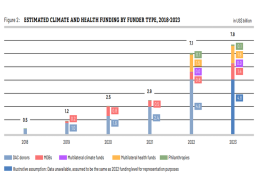Over 80% of UK organisations continue to prioritise sustainability, with nearly three-quarters willing to sacrifice income or profits to meet ESG goals, according to new research conducted by the University of Nottingham in collaboration with law firm Browne Jacobson.
The study, ESG and Sustainability: Rethinking Communications and Credibility, forms part of an Innovate UK Knowledge Transfer Partnership between the university and the law firm. The findings, based on responses from nearly 250 UK-based public and private sector organisations, were gathered in spring 2025, following the U.S. presidential election and notable local election gains by the Reform Party in the UK.
Despite global political shifts and rhetoric suggesting a retreat from ESG and DEI (Diversity, Equity and Inclusion) priorities, the research shows that organisations are continuing to embed responsible practices at the heart of their operations. However, researchers found that inconsistent and vague language around ESG and sustainability often undermines credibility and effectiveness.
“Our research shows how UK organisations are standing firm in their drive to operate responsibly,” said Dr Victoria Howard, Project Lead at Browne Jacobson and Diversity and Inclusion Specialist at the University of Nottingham. “But inconsistent terminology causes messages to be lost or misinterpreted. Clear, credible communication is vital to demonstrating true commitment and ensuring stakeholder trust.”
Professor Louise Mullany, Director of Linguistic Profiling for Professionals at the University of Nottingham, echoed the concerns, warning that “vague language or over-exaggerated strategies risk becoming meaningless,” particularly as accountability and governance expectations intensify.
The report recommends organisations reassess their communication strategies, placing greater emphasis on using terminology that resonates with key stakeholders—including employees, customers, regulators, and investors. It also highlights the need to address legal risks across all ESG dimensions, noting that while DEI is more frequently addressed with legal oversight, other aspects of ESG are often overlooked.
Ben Standing, Head of Sustainability Strategy at Browne Jacobson, noted that “ESG is fundamentally about building sustainable organisations—attracting top talent, cutting costs, and enabling growth. There is much to learn from the diverse approaches across sectors.”
Jeremy Irving, Head of Financial Services Regulation at the firm, added, “The right language plays a critical role in managing reputational and legal risks, particularly as scrutiny of greenwashing and other ESG claims increases.”
The study underlines the importance of aligning sustainability communications with organisational values to reinforce credibility, build trust, and navigate a rapidly evolving regulatory and reputational landscape.
















